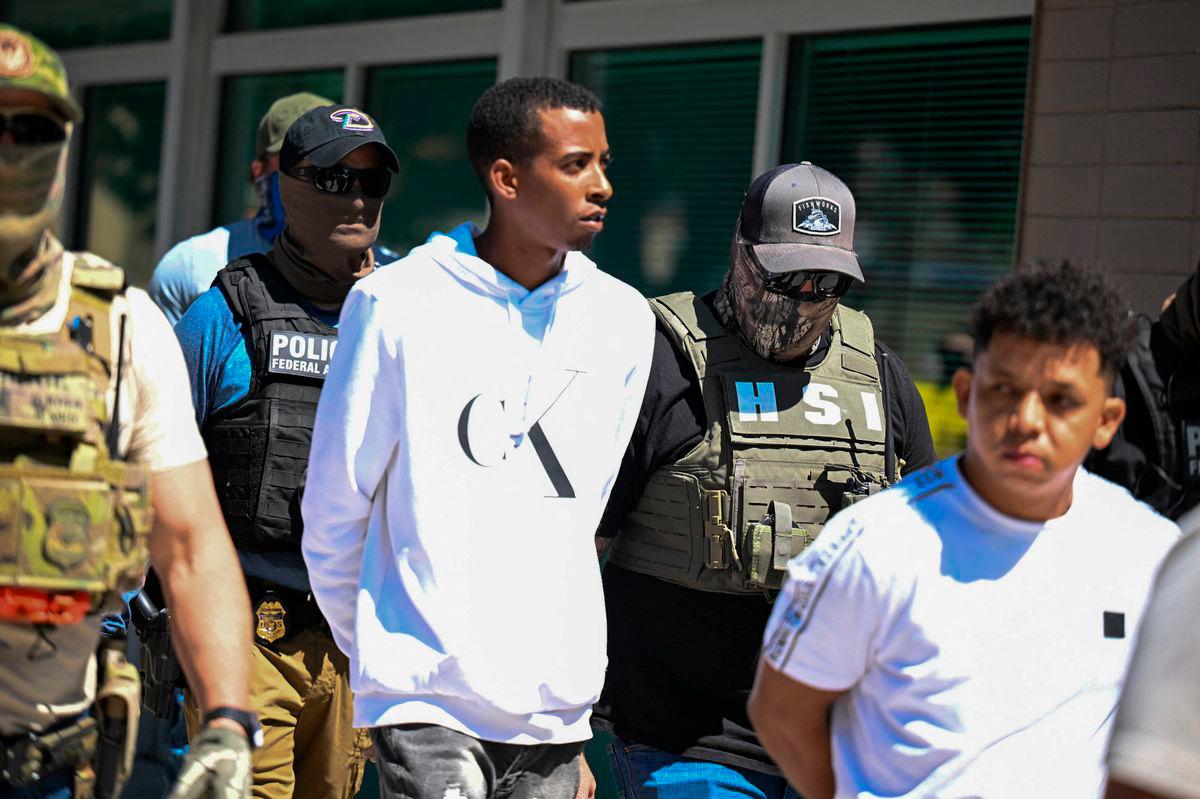BOSTON: A federal judge ruled on Wednesday that the U.S. government violated his court order by attempting to deport migrants to South Sudan, opening another front in a battle between Donald Trump and judges who have imposed checks on the Republican president's hardline immigration policies.
U.S. District Judge Brian Murphy said U.S. officials risked being held in contempt of court for violating a preliminary injunction he issued in April to block the administration from sending deportees to countries other than their own without the opportunity to raise any concerns they had for their safety.
At a hearing in Boston, the judge said the U.S. Department of Homeland Security failed to provide six migrants covered by his injunction a meaningful opportunity to contest being sent to South Sudan when it notified them of that possibility less than 24 hours before they were loaded onto a plane.
That was “plainly insufficient” notice, according to the judge, who was appointed by Trump's Democratic predecessor President Joe Biden. He later issued an order clarifying that non-citizens must be given at least 10 days to raise a claim that they fear for their safety before they are deported to a country other than their own.
The White House in a statement called Murphy “a far-left activist judge” and accused him of trying to dictate foreign policy.
The Homeland Security Department said eight men from Cuba, Laos, Mexico, Myanmar, Vietnam and South Sudan had been deported, and they had been convicted of murder, armed robbery and other serious crimes. Six of them were covered by Murphy's order, the judge said.
“These are the monsters that the district judge is trying to protect,“ Department of Homeland Security spokesperson Tricia McLaughlin told reporters at a press conference ahead of Wednesday’s hearing.
Murphy during the hearing said officials should be on notice that everybody involved in an illegal deportation risked criminal contempt, but did not immediately punish anyone.
“The department’s actions in this case are unquestionably violative of this court's order,“ Murphy said. Immigration rights advocates have urged Murphy to order the seven men be returned to the U.S. The judge instead directed officials to grant the men interviews to assess if they have any reasonable fears of going to South Sudan and provide them a means to speak to lawyers.
Murphy said it was his prerogative that the men be brought back to the United States during that process, but he granted the Homeland Security Department the ability to keep them overseas as long as they remain in its custody.
The judge's finding was one of the strongest rebukes so far to Trump's administration since the president returned to office in January. As a presidential candidate last year, Trump pledged to crack down on illegal immigration but many of his attempts to step up deportations have been impeded by the courts.
Justice Department lawyer Elainis Perez said at the hearing that Murphy's April preliminary injunction did not specifically state how much notice was required, and the expedited deportations did not violate rights protected under the U.S. Constitution.
South Sudan has long been dangerous even for locals. The U.S. State Department advises citizens not to travel there due to violent crime and armed conflict. The United Nations has said the African country's political crisis could reignite a brutal civil war that ended in 2018.
“They were being sent to a war-torn country where their very life and safety is under threat,“ Trina Realmuto, a lawyer for the migrants at the National Immigration Litigation Alliance, told reporters.
The dispute echoes another case in which Washington-based U.S. District Judge James Boasberg found that the administration violated his order to pause the deportations of Venezuelan migrants to a prison in El Salvador.
Boasberg also launched a criminal contempt investigation, but an appeals court has temporarily blocked it while the Trump administration challenges his probe. Trump on social media called Boasberg a “Radical Left Lunatic” and a “troublemaker and agitator,“ and has called for his impeachment - a congressional process that could lead to removal from the bench.
In another case, Greenbelt, Maryland-based U.S. District Judge Paula Xinis said the administration did not adequately explain how it was complying with her order to facilitate the return of a Salvadoran man named Kilmar Abrego Garcia, who was deported to El Salvador despite an earlier court order that he not be sent there.
Trump and U.S. officials appointed by him have accused judges of overstepping their authority and of seeking to thwart his agenda.
Sitting on a plane
The case before Murphy stems from a legal challenge brought by immigrant advocates to the administration's push to deport migrants with final orders of removal to countries other than their own, including migrants who have protections from being sent to their home countries due to safety concerns.
Murphy sided with the plaintiffs, ruling last month that any migrants being sent to a third country were entitled to due process under the U.S. Constitution's Fifth Amendment and must have a meaningful opportunity to raise any fears for their safety.
In an emergency hearing on Tuesday after the advocates said they learned migrants were being flown to South Sudan, Murphy ordered the administration not to let the migrants leave the custody of U.S. immigration authorities.
The migrants remain in U.S. custody. A U.S. official said at a hearing on Wednesday that they were currently sitting on a plane, but did not say where.
Speaking to reporters on Wednesday, South Sudan police spokesperson James Mande Enoka said that when the migrants arrived, they would be investigated and then “be again deported to the correct country.”









